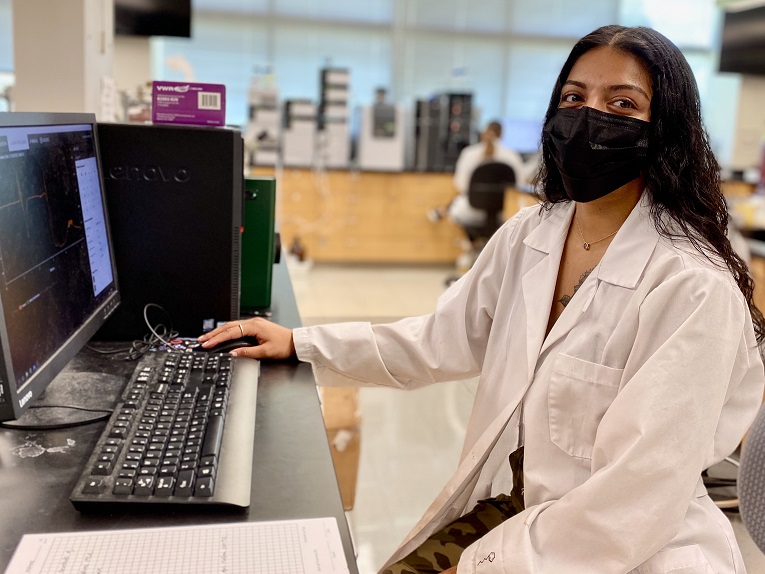Rowan University expands paid research opportunities for undergrads
Rowan University expands paid research opportunities for undergrads

Rowan University has extended its paid summer research opportunities for underrepresented students pursuing degrees in science, technology, engineering and math.
Twelve students matched this summer with faculty mentors for five- and 10-week internships in the College of Education, the Henry M. Rowan College of Engineering, the Rohrer College of Business and the College of Science & Mathematics. The students received stipends, plus an on-campus housing allowance, totaling up to $6,240 per student.
Funded by Rowan University’s Division of Diversity, Equity & Inclusion, the Office of the Provost and the Division of University Research, the DEI STEM experiential learning program prioritized underrepresented students without prior research experience and those interested in graduate studies. The new program grew out of Rowan’s University of the Future plans.
“We wanted to provide experiential learning using our vibrant faculty research,” said Dr. Tabbetha Dobbins, interim vice president for research at Rowan University. Opportunities for STEM-centered research are threaded throughout the University, Dobbins noted.
“I believe it will broaden everyone's perspective of what it means to be STEM,” Dobbins added.
Two students—Keyoni Collins and Kingsley Nwankpah—worked with the STEM-VRCE (STEM Through Virtual Reality Career Exploration) program to introduce STEM careers to high school students in rural South Jersey. The program will use virtual reality 360-degree videos to introduce underrepresented students, particularly women and students of color, to in-demand STEM careers.
Collins and Nwankpah completed training to assist in research and provided feedback to researchers on video and module development. Professors Sarah Ferguson and Kara Ieva from the College of Education and Christopher Winkler from the Ric Edelman College of Communication & Creative Arts are leading the project.
Collins is a rising junior biological science major pursuing the Thomas N. Bantivoglio Honors Concentration in the Honors College. She intends to become a physician and an advocate for STEM in marginalized communities.
“As a student of color, I find that STEM is not advertised or pushed as strongly as many of the other fields of study,” said Collins. “A goal of mine is to help break that barrier. This work will help high school students get the exposure they need, through virtual reality, for STEM careers.”
Biochemistry major Sangeeta Kurre worked with Dr. James Grinias this summer to analyze drugs, such as benzodiazepines and opioids, using small-capillary columns.
After graduation, Kurre plans to pursue a master’s degree in pharmaceutical sciences at Rowan, followed by a career in the research and development side of the pharmaceutical industry.
“I think this experience has helped develop my knowledge within the field of analytical science,” Kurre said, “and has given me hands-on experience with various instruments and techniques regularly used in the industry.”
Dr. James Roh, associate professor of management and entrepreneurship in the Rohrer College of Business, said the DEI STEM program has been especially helpful for one of his students, a rising senior finance major.
Roh said Jinsheng Li spent his summer diving into business analytics.
“It’s difficult to collect data that is usable, and to make it usable, but Jinsheng is collecting data from the Standard and Poor’s 500 through a Bloomberg terminal in the RCB Finance Lab,” Roh said.
The Bloomberg terminal enables users to access great quantities of information, including financial, environmental and government data, but deciphering the data and making it usable takes patience and a trained analytical mind, Roh said.
“This is a really valuable opportunity,” Roh said. “The ability to investigate real-life problems is a graduate-level experience. If you know how to analyze data, there can be many opportunities, not just on Wall Street but with many companies, and he’s learning fundamental skills firsthand.”